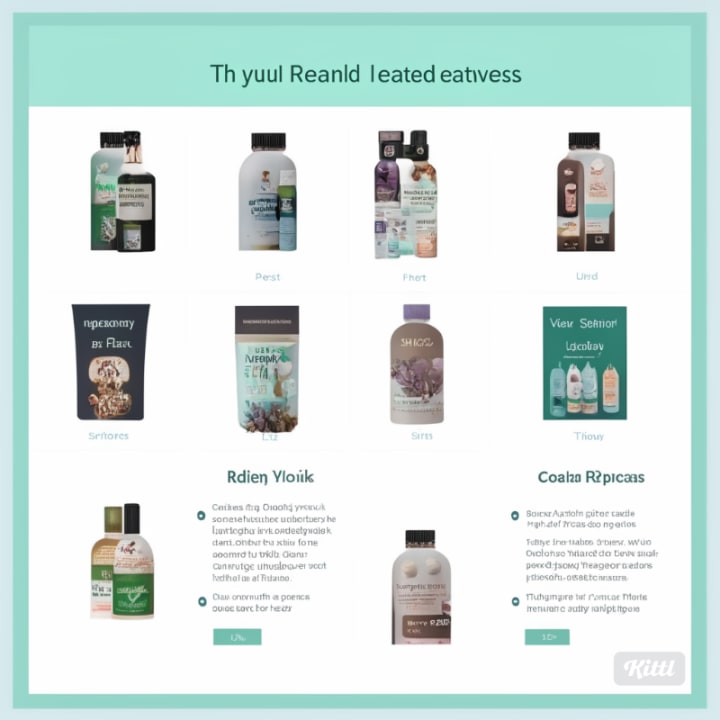Content warning
This story may contain sensitive material or discuss topics that some readers may find distressing. Reader discretion is advised. The views and opinions expressed in this story are those of the author and do not necessarily reflect the official policy or position of Vocal.
e-commerce marketing examples
Why Ecommerce is the Future: Examining Effective Marketing Strategies for Online Retailers

I'd be happy to discuss why ecommerce is the future and provide some examples of ecommerce marketing strategies.
Ecommerce, or electronic commerce, refers to the buying and selling of goods and services online. Over the past few decades, ecommerce has experienced explosive growth, with more and more consumers choosing to shop online. In fact, global ecommerce sales are projected to reach $4.9 trillion by 2021, up from $2.3 trillion in 2017.
Boost your ROI with the most effective email marketing and automation software here

There are several reasons why ecommerce is becoming increasingly popular and can be considered the future of retail:
Convenience: One of the main reasons why consumers are turning to ecommerce is convenience. With online shopping, consumers can browse and purchase products from the comfort of their own homes, without having to physically visit a store. This is especially appealing for busy consumers who don't have the time to visit a physical store during regular business hours.
Variety: Ecommerce also offers consumers a wider variety of products to choose from. Online retailers can offer a larger selection of products than physical stores, as they don't have to worry about physical space limitations. This means that consumers can find exactly what they're looking for, even if it's a niche product.
Boost your ROI with the most effective email marketing and automation software here

Competitive pricing: Ecommerce retailers often offer competitive pricing, as they don't have the same overhead costs as physical stores. This means that consumers can often find better deals online than they would in a physical store.
Personalization: Ecommerce also allows retailers to personalize their offerings to individual consumers. By analyzing consumer data, retailers can offer personalized recommendations and promotions, which can lead to increased sales and customer loyalty.
Accessibility: Finally, ecommerce is also more accessible for consumers with disabilities or mobility issues. Online shopping allows these consumers to purchase products without having to physically visit a store, which can be difficult or impossible for some individuals.
Boost your ROI with the most effective email marketing and automation software here

Given these benefits, it's clear why ecommerce is becoming the future of retail. Now, let's take a look at some ecommerce marketing examples that demonstrate how retailers are leveraging these advantages to drive sales and build customer loyalty.
Personalized Product Recommendations: One of the most effective ecommerce marketing strategies is to offer personalized product recommendations to individual consumers. By analyzing consumer data, retailers can identify products that are likely to appeal to each individual consumer, and offer these products as recommendations. This not only makes it easier for consumers to find products they're interested in, but it also helps to increase sales by encouraging consumers to purchase additional items.
One example of a retailer that does this well is Amazon. Amazon's recommendation engine is renowned for its effectiveness, and many consumers rely on Amazon's recommendations when making purchasing decisions. By using data such as purchase history, search history, and browsing behavior, Amazon is able to offer personalized product recommendations that are tailored to each individual consumer.
Social Media Advertising: Another effective ecommerce marketing strategy is to leverage social media advertising to reach potential customers. Social media platforms such as Facebook and Instagram offer powerful advertising tools that allow retailers to target specific demographics and interests.
One example of a retailer that has mastered social media advertising is Fashion Nova. Fashion Nova has built a massive following on Instagram by leveraging influencer marketing and user-generated content. The brand regularly features user-generated content on its Instagram page, which not only helps to build brand loyalty, but also encourages consumers to share their own content featuring Fashion Nova products. Additionally, Fashion Nova frequently partners with influencers to promote its products to their followers, which helps to extend the brand's reach and drive sales.
Email Marketing: Email marketing is another effective ecommerce marketing strategy that can help to build customer loyalty and drive sales. By sending targeted emails to consumers, retailers can keep them informed about new products, promotions, and other relevant information.
One example of a retailer that does this well is Sephora. Sephora's email marketing campaigns are highly targeted and personalized, and often include information about new products, exclusive promotions, and personalized recommendations. By using data such as purchase history and browsing behavior, Sephora is able to offer personalized promotions that are tailored to each individual consumer.
Chatbots: Chatbots are another emerging ecommerce marketing trend that can help retailers to provide better customer service and increase sales. Chatbots are automated messaging systems that can answer customer questions and provide product recommendations.
One example of a retailer that uses chatbots effectively is H&M. H&M's chatbot, named "H&Mbot," is available on the brand's website and can help customers with everything from finding the right size to placing an order. By providing a seamless customer service experience, H&M is able to build customer loyalty and increase sales.
Boost your ROI with the most effective email marketing and automation software here

In conclusion, ecommerce is the future of retail, and retailers that are able to effectively leverage ecommerce marketing strategies will be well-positioned to succeed in the years to come. By offering personalized product recommendations, leveraging social media advertising, using email marketing, and implementing chatbots, retailers can provide a better customer experience and drive sales.





Comments
There are no comments for this story
Be the first to respond and start the conversation.